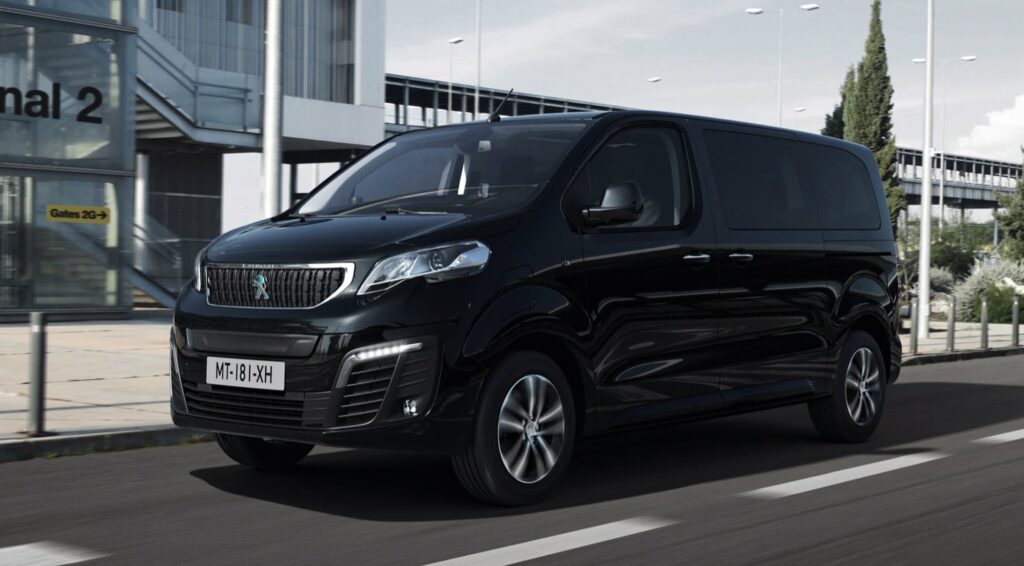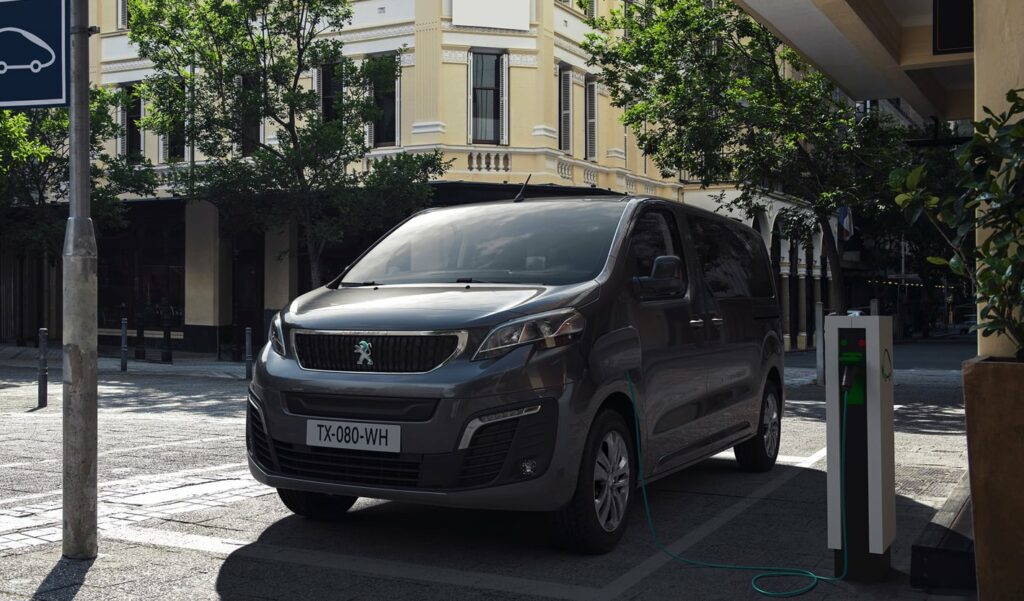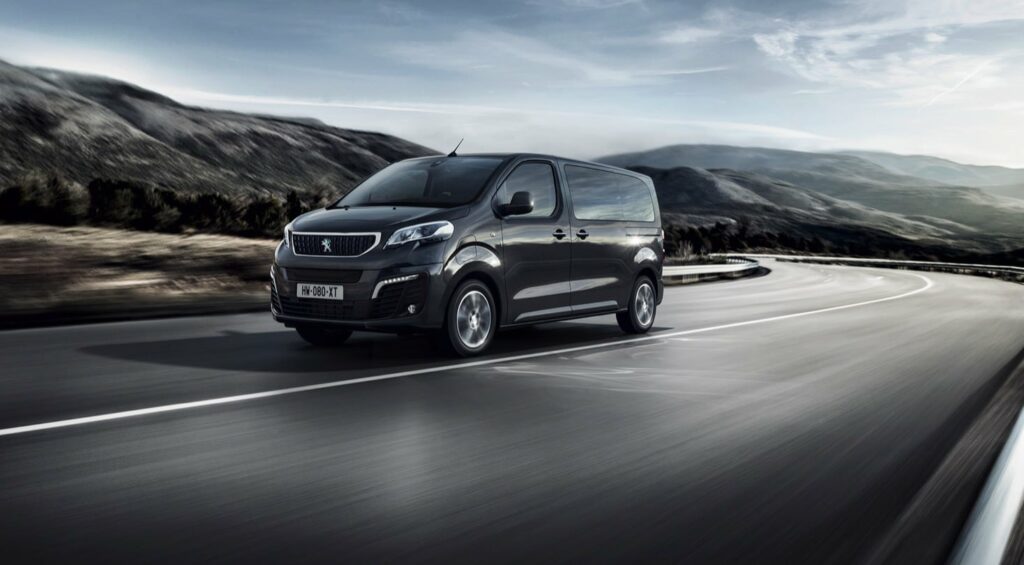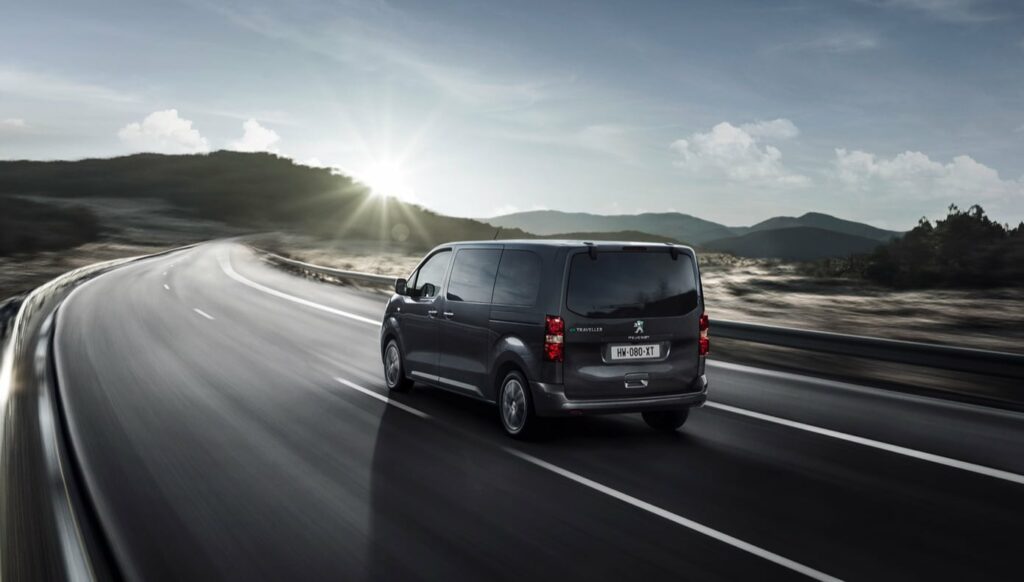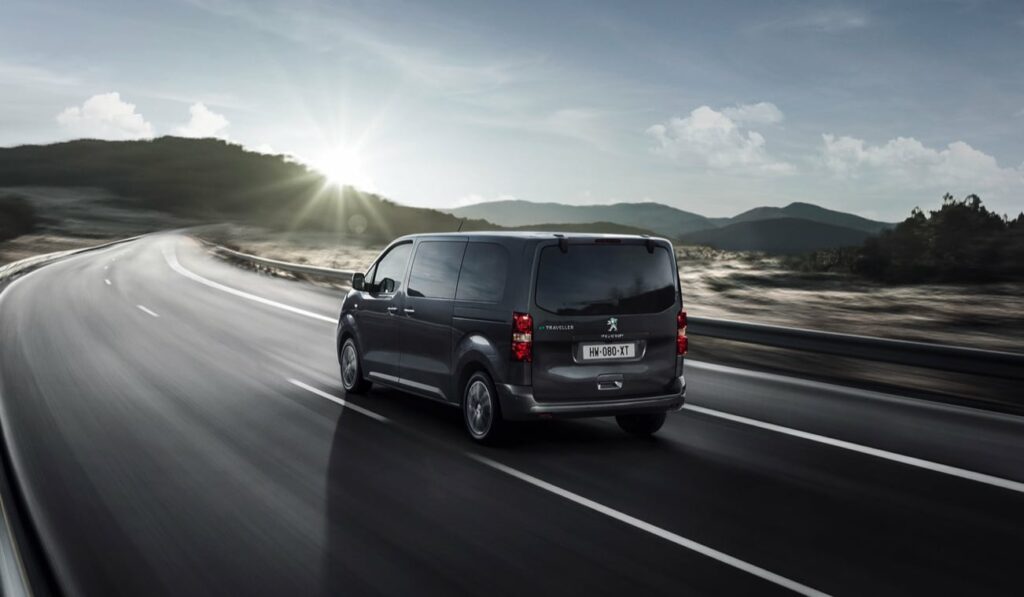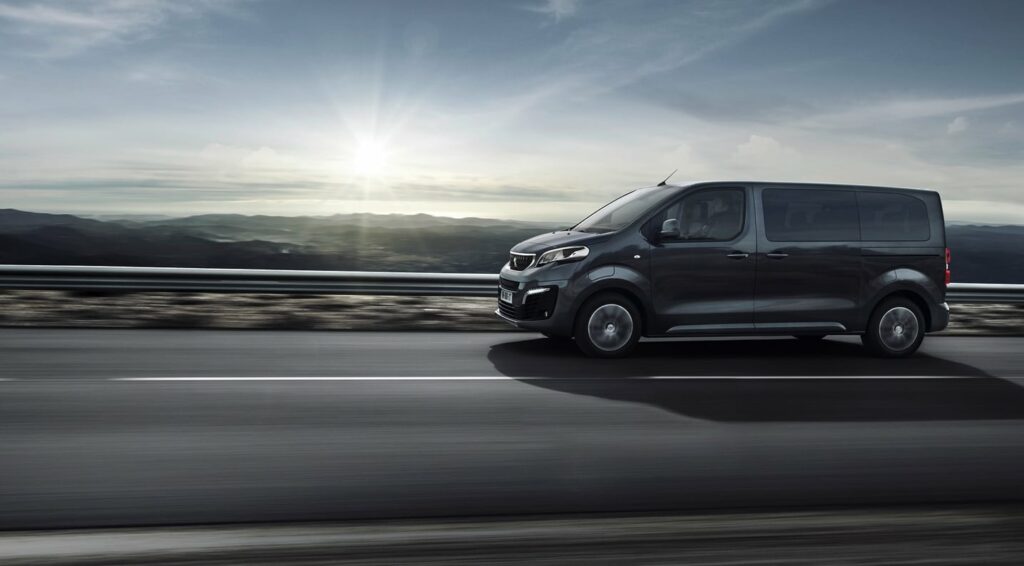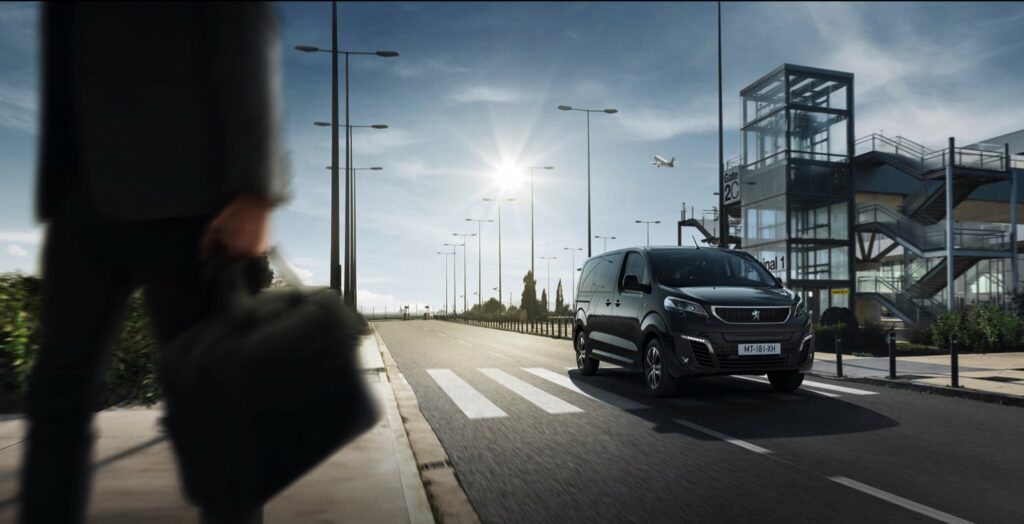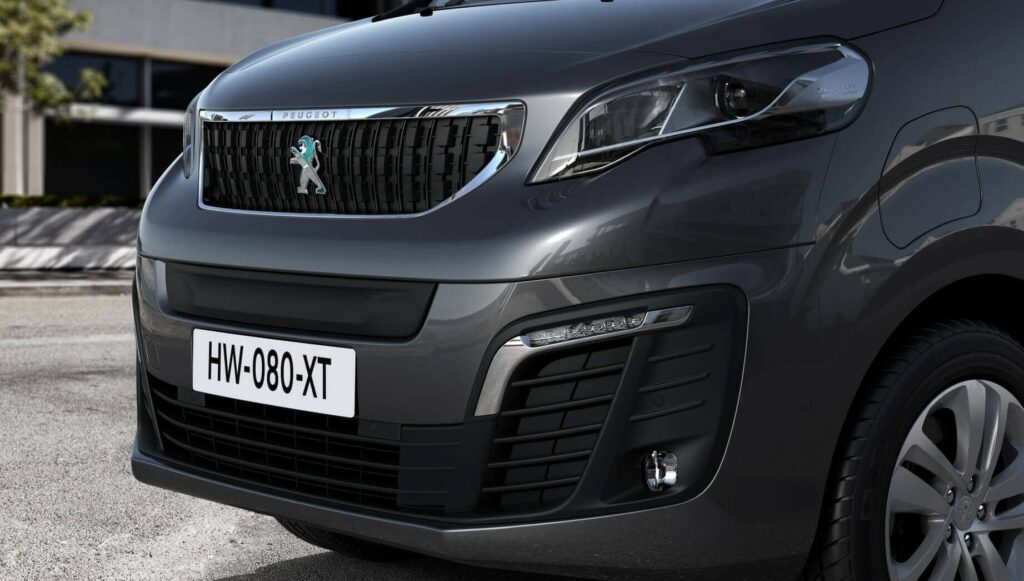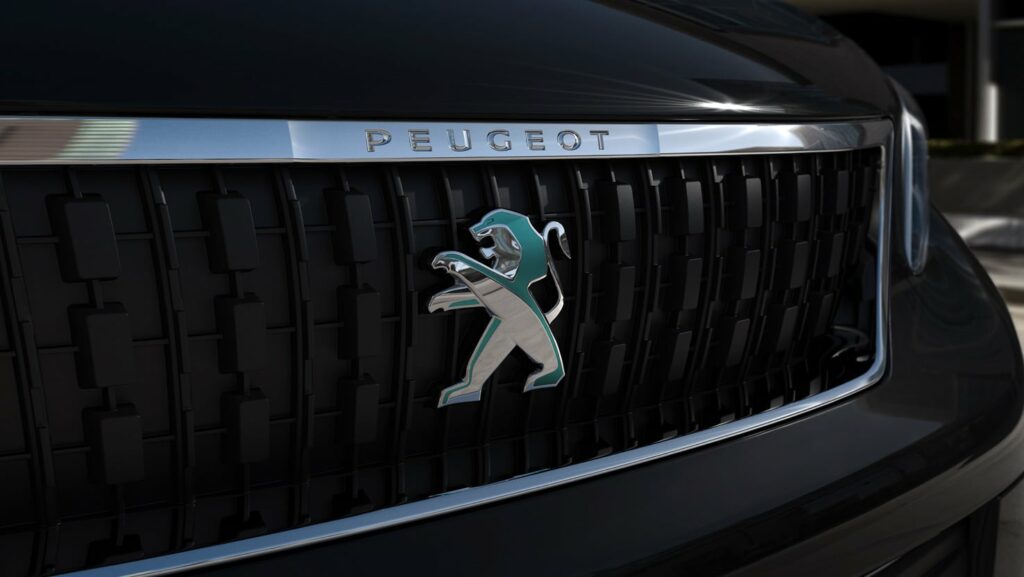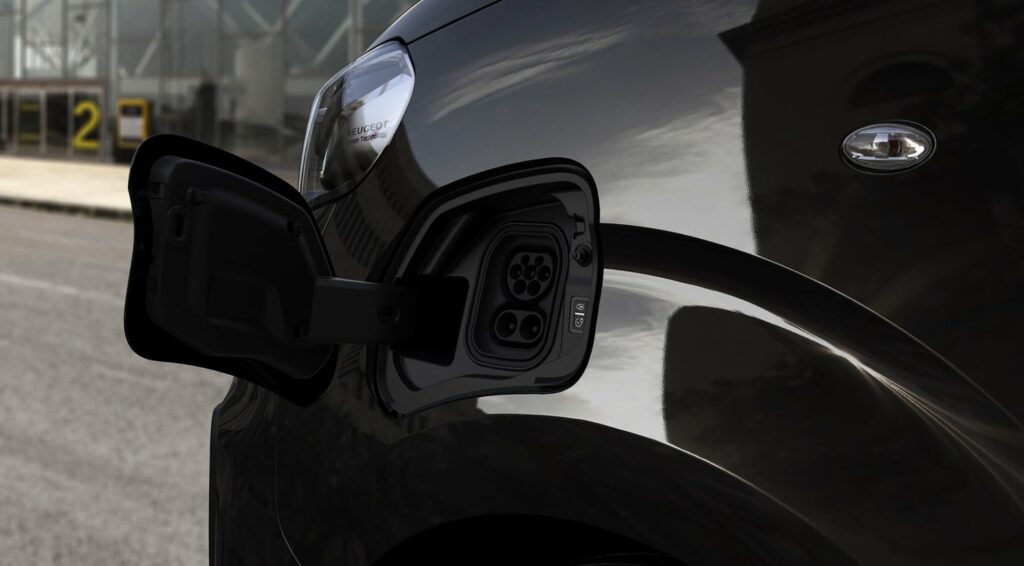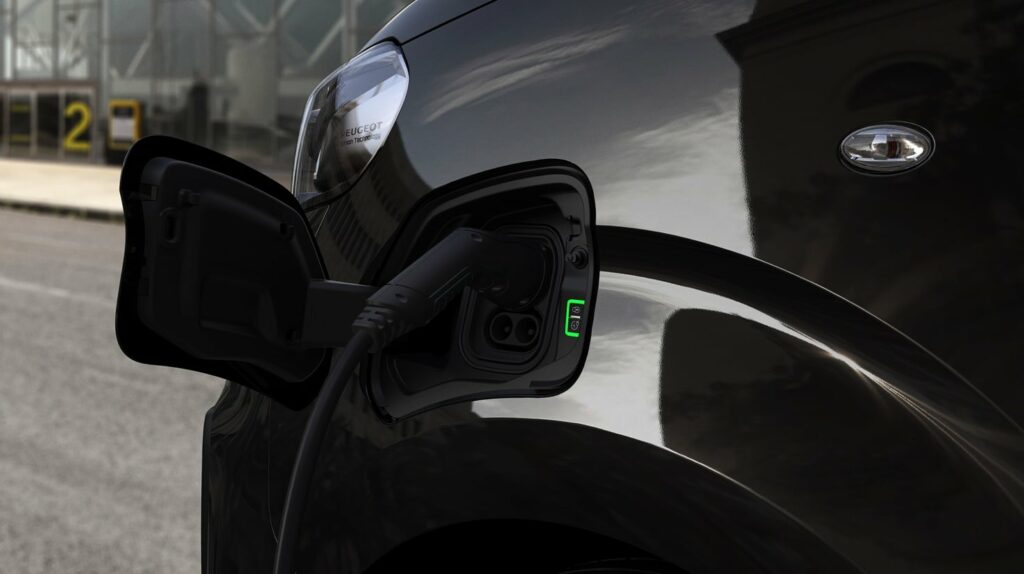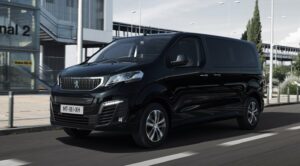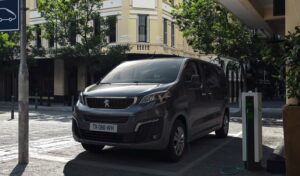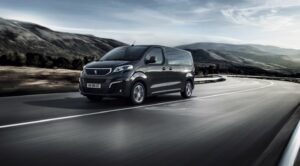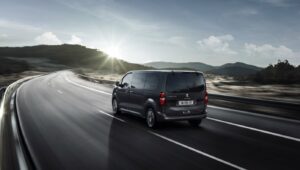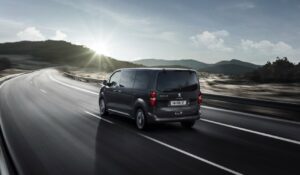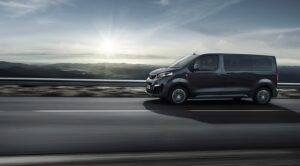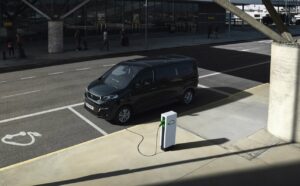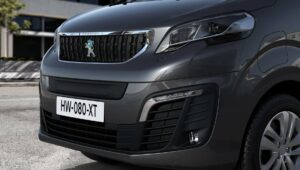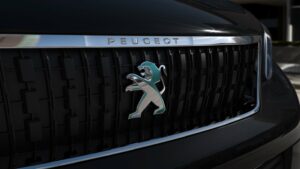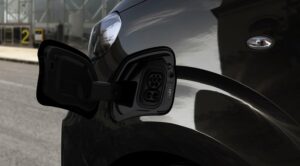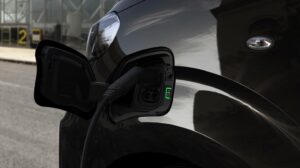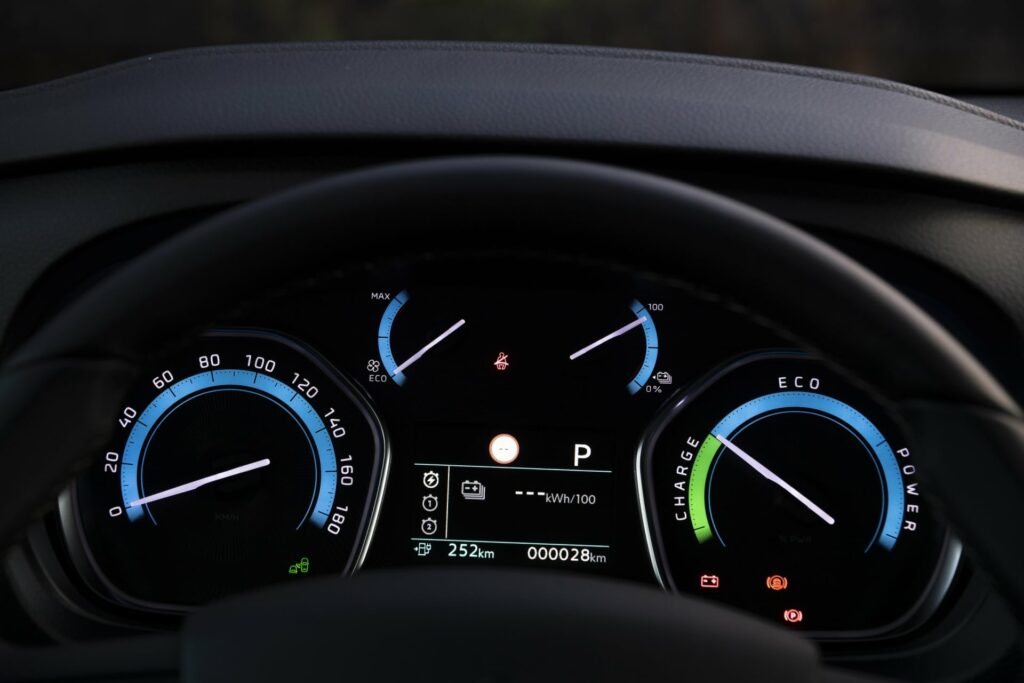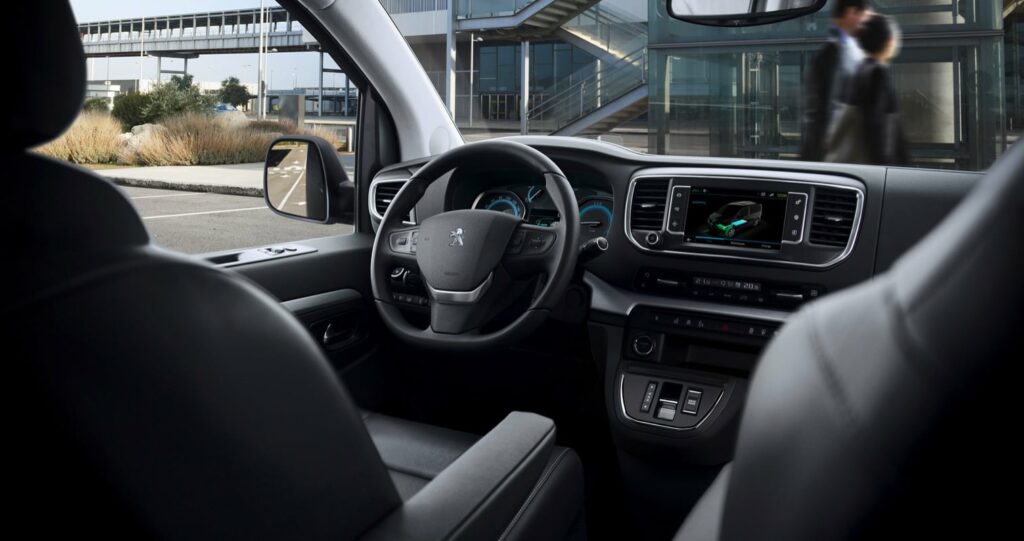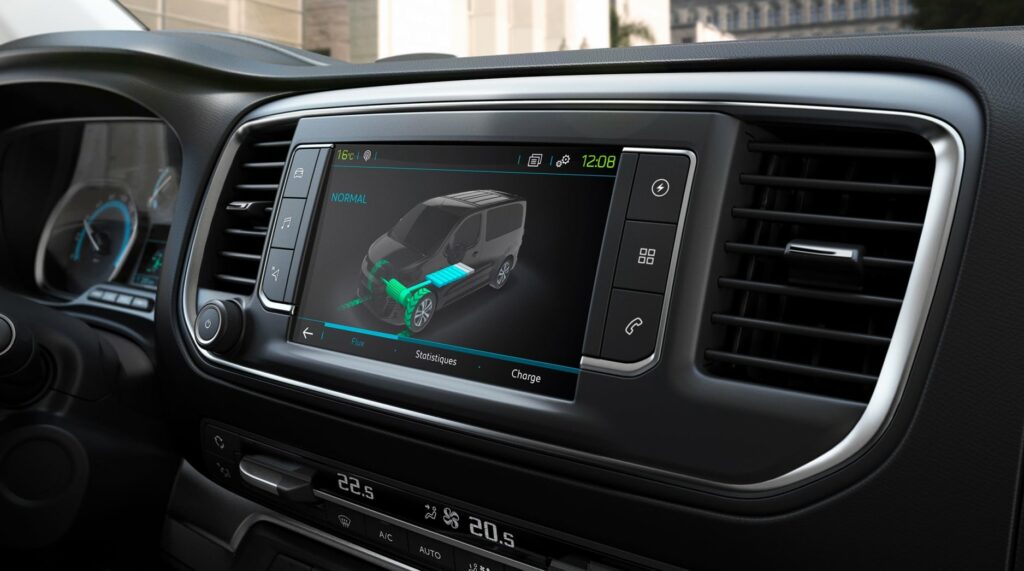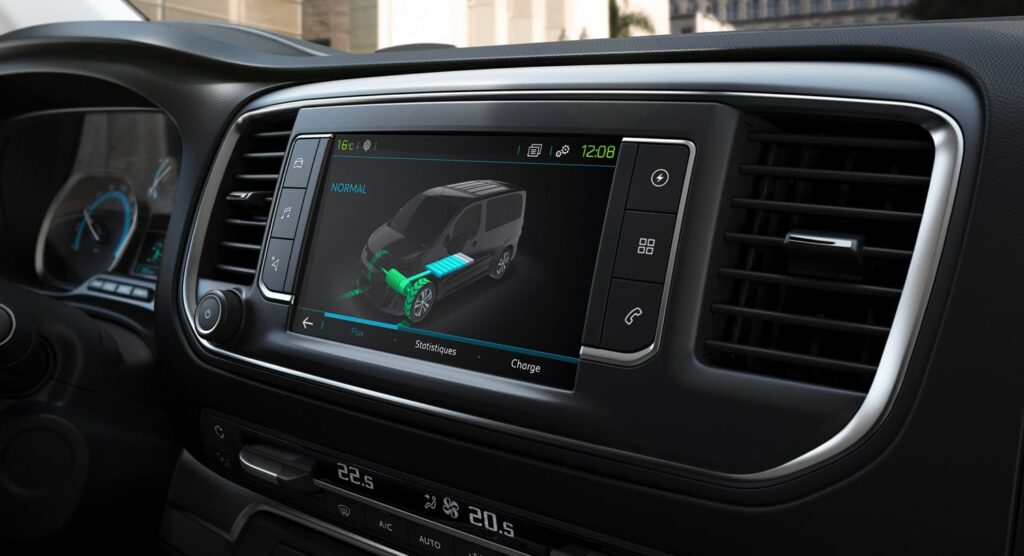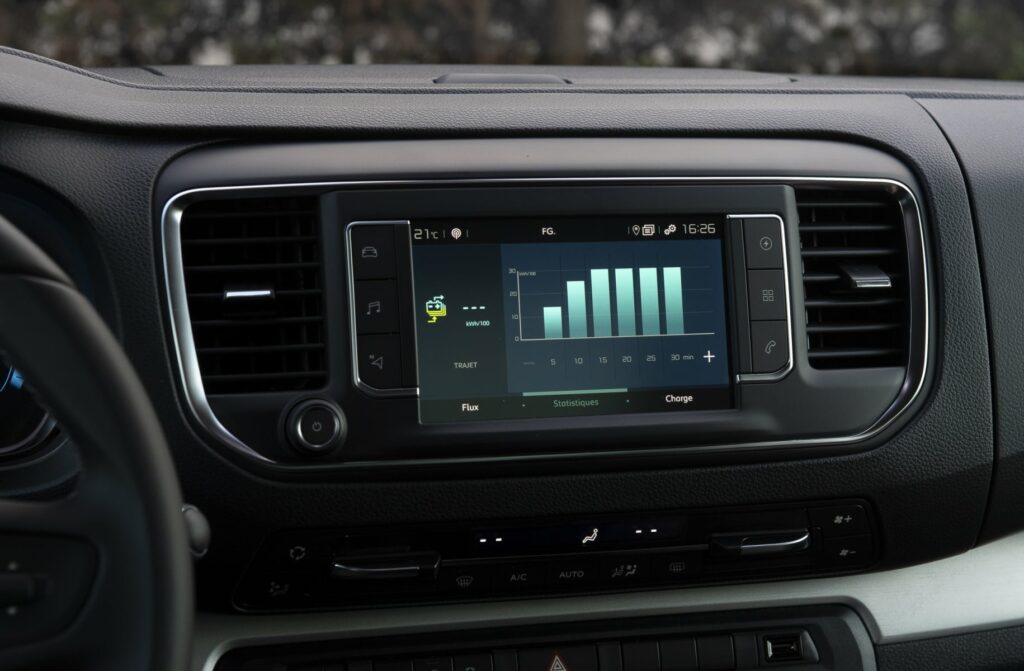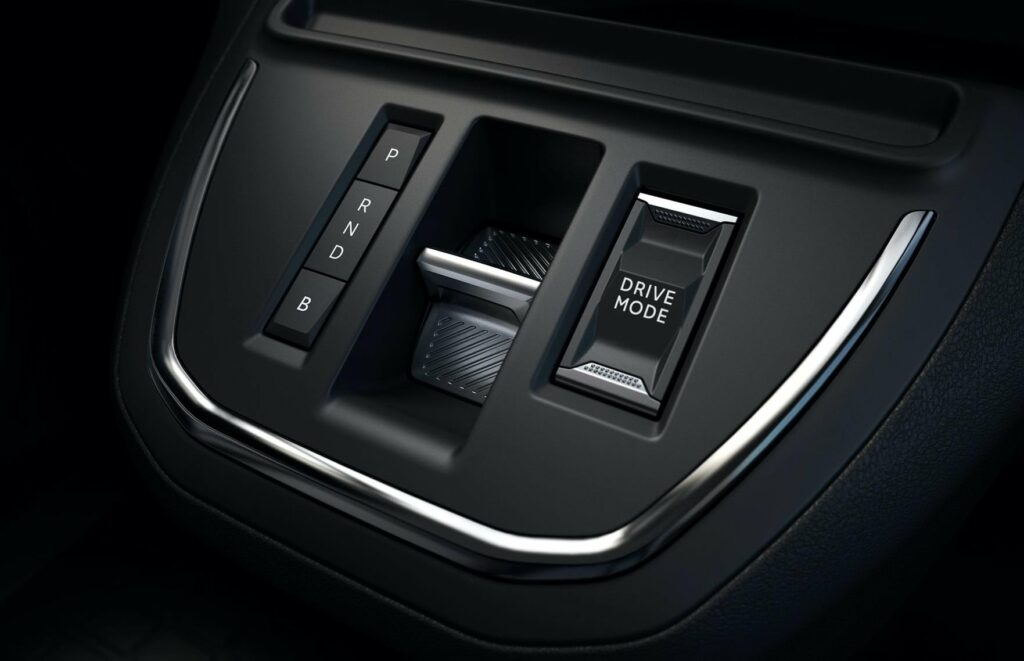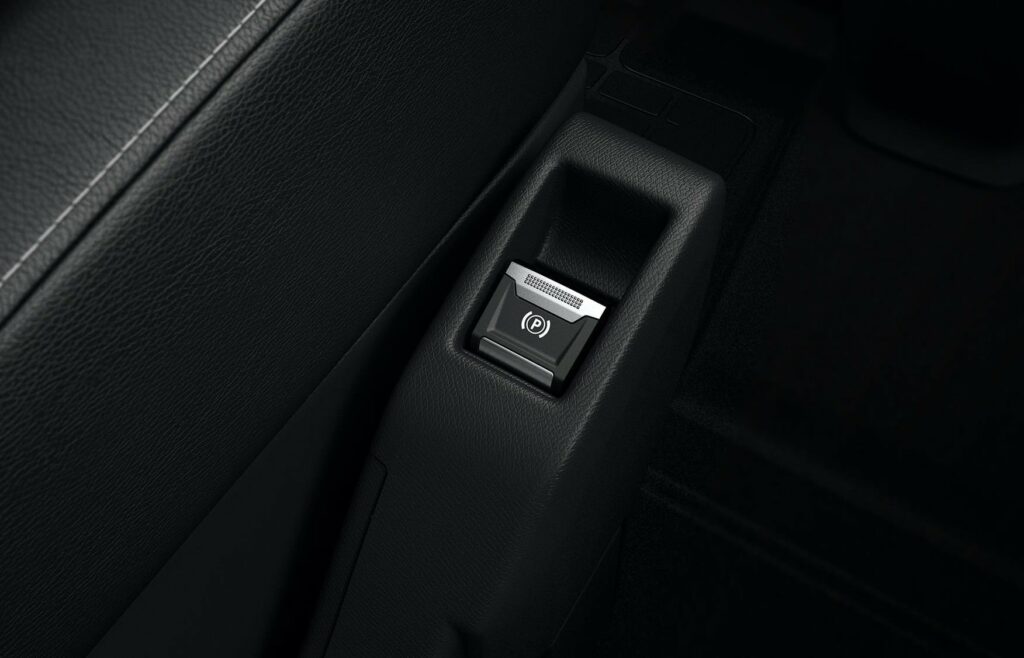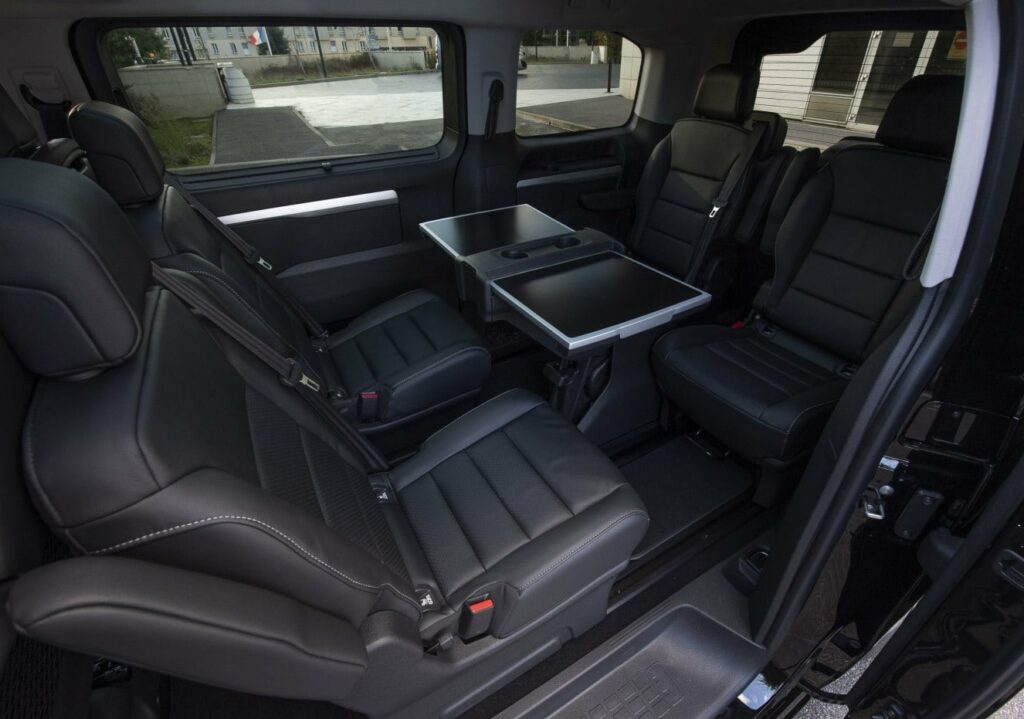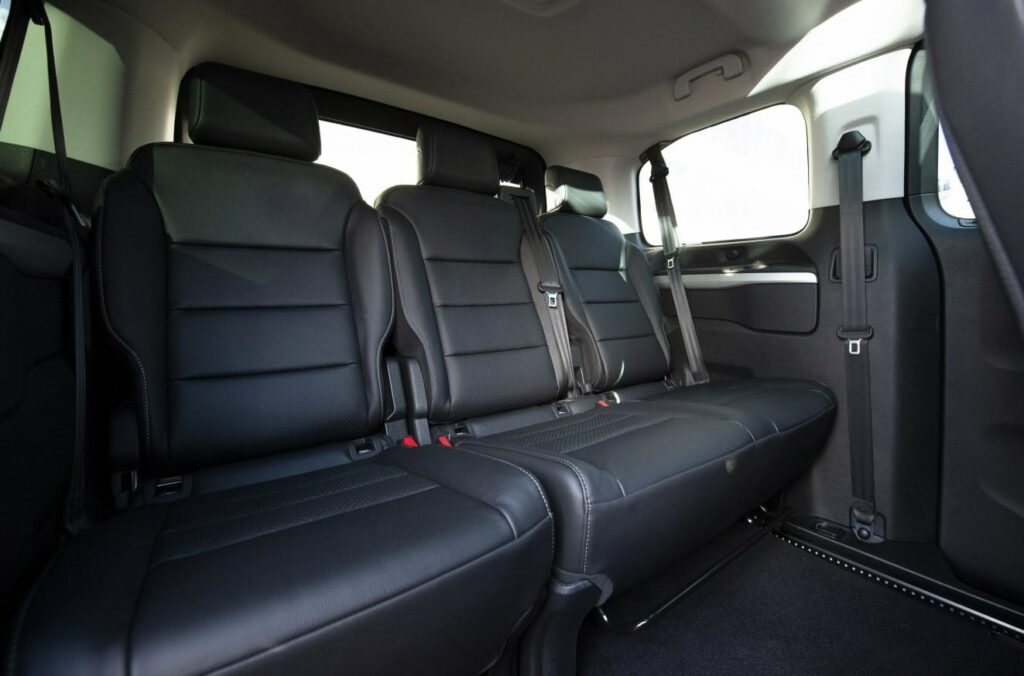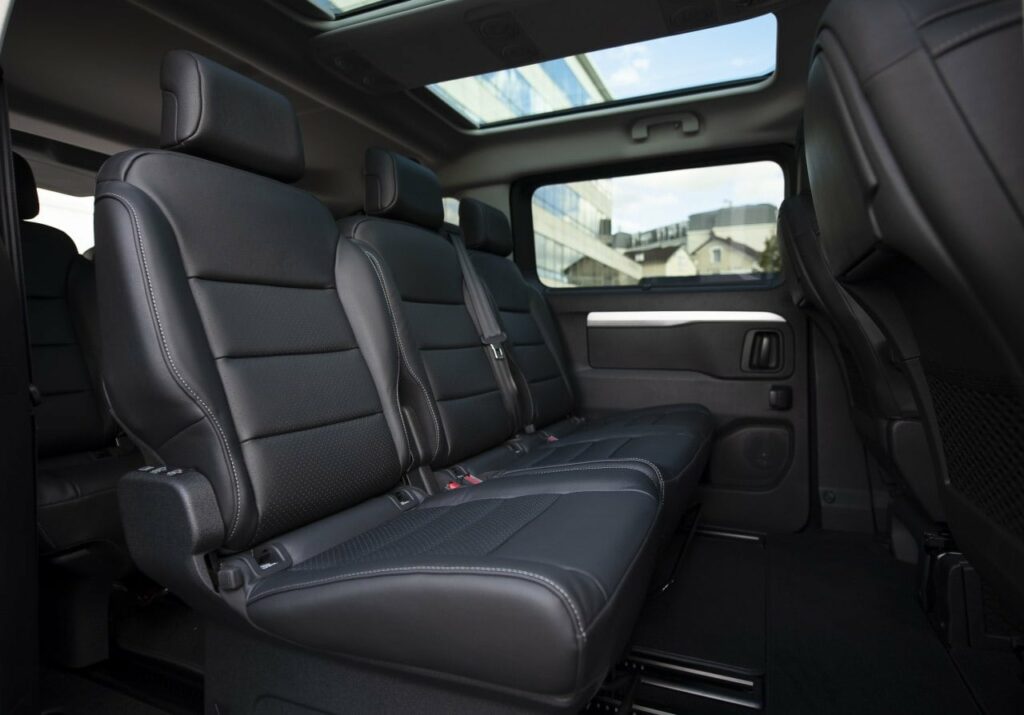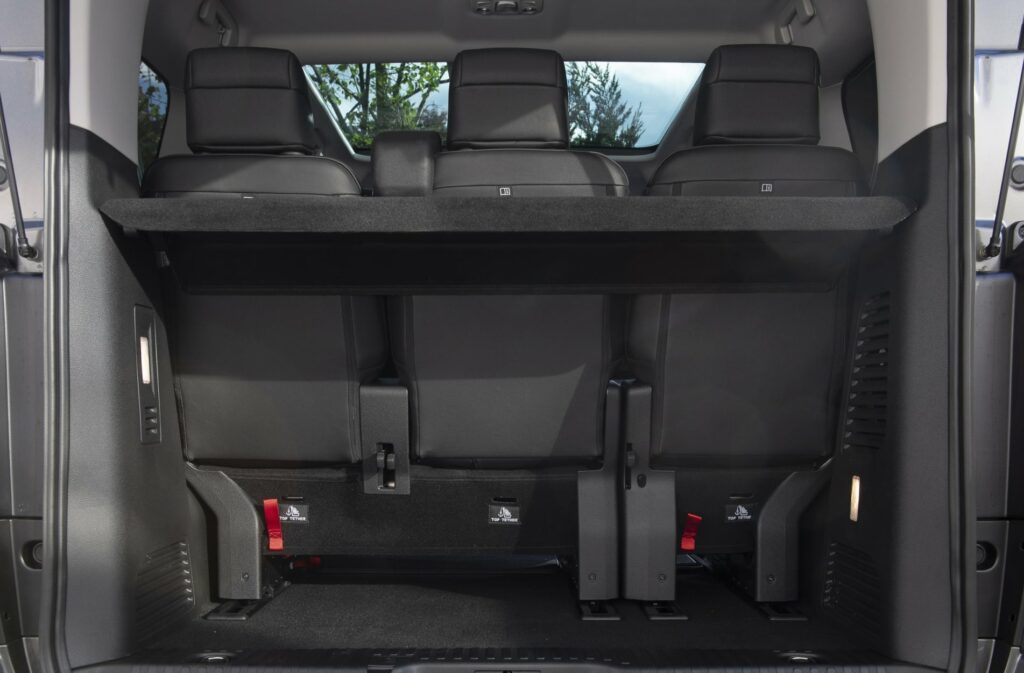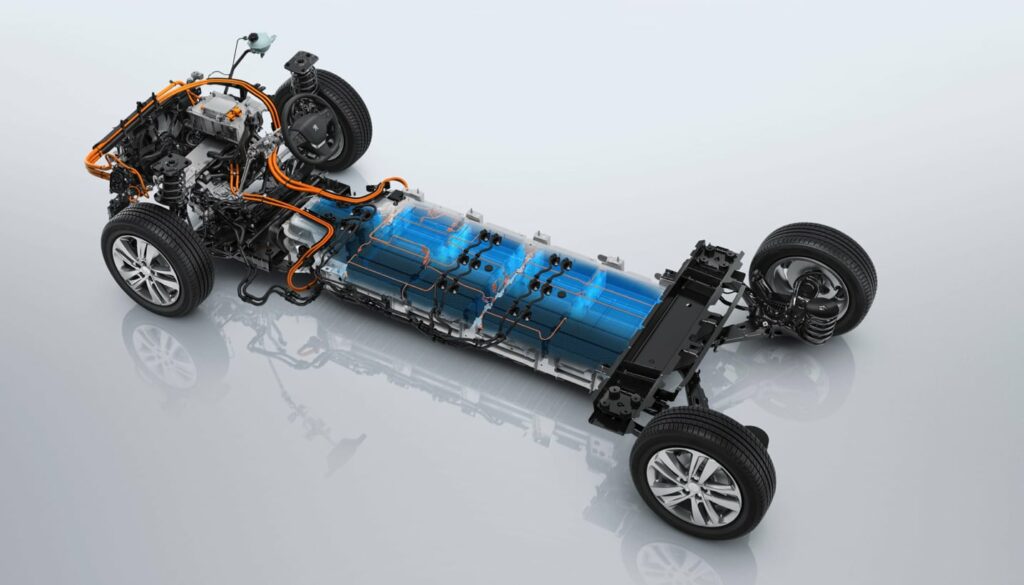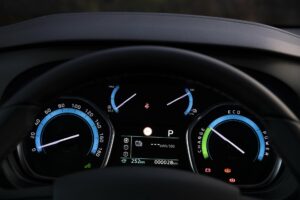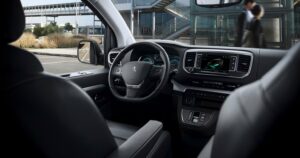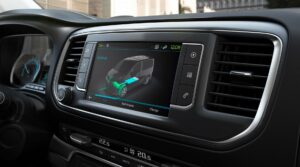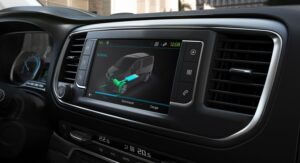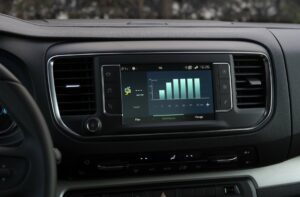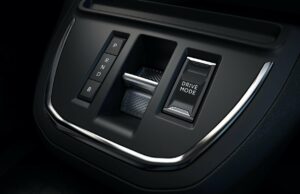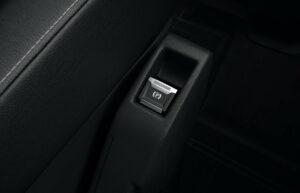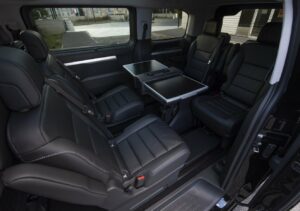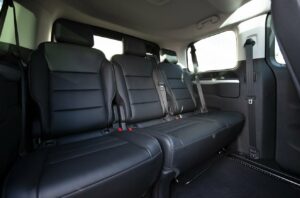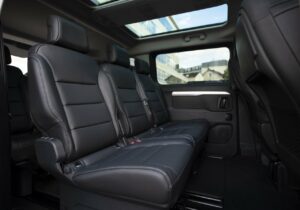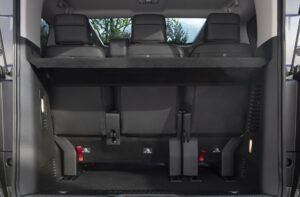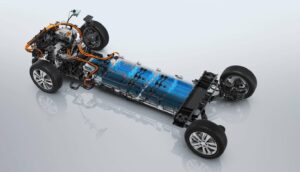Peugeot e-Traveller Long 75 kWh
The Peugeot e-Traveller Long 75 kWh is an all-electric passenger van based on the Peugeot Traveller with a larger cargo compartment. It is equipped with a more powerful 75 kWh battery pack, which provides a range of up to 260 km on a single charge in accordance with WLTP standards.
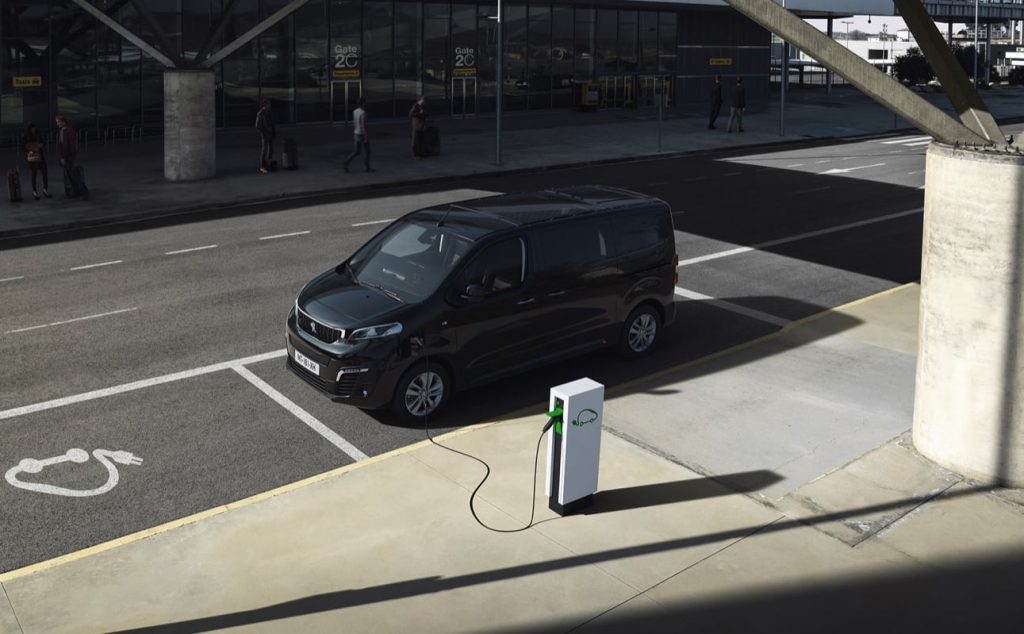
The e-Traveller Long 75 kWh has an electric motor that produces 100 kW and 260 Nm of torque. It accelerates from 0 to 62 mph (100 km/h) in just 13.3 seconds and reaches a top speed of 80 mph (130 km/h).
The van can accommodate up to 9 passengers and has a maximum payload of 4,554 liters thanks to its extended length. It is also equipped with a 7-inch touchscreen infotainment system, air conditioning, and a number of safety features such as lane departure warning and automatic emergency braking.
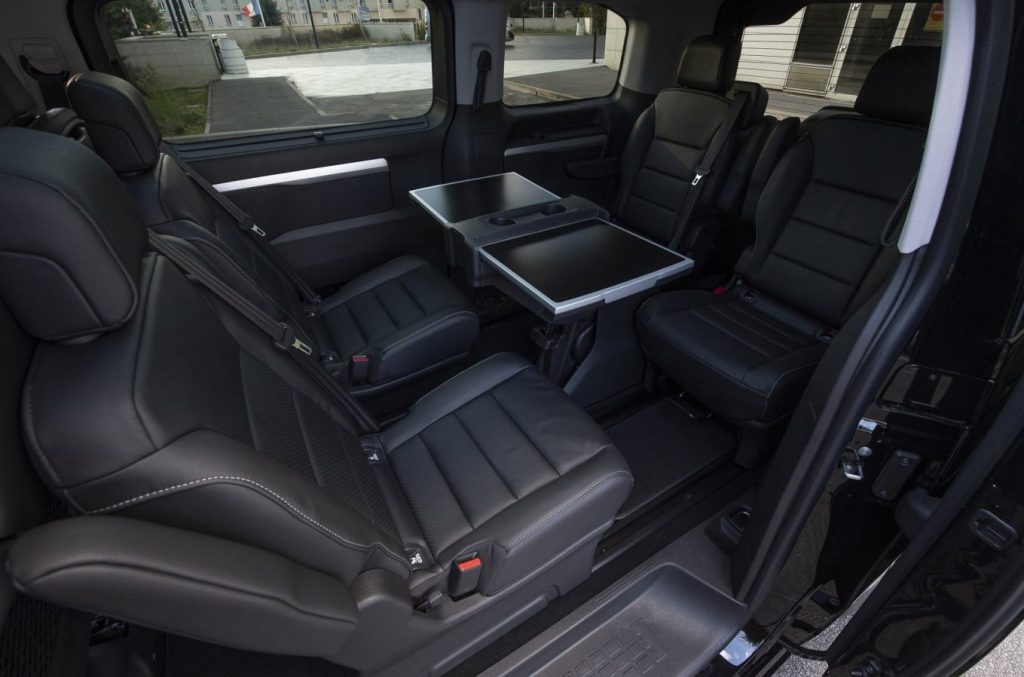
The Peugeot e-Traveller Long 75 kWh can be charged from a standard household outlet or at a public charging station. Using a 100 kWh DC fast charger, the battery can be charged from 0 to 80% in just 45 minutes.
All in all, the Peugeot e-Traveller Long 75 kWh is a practical and spacious electric vehicle solution for families or businesses that require increased range and carrying capacity.
| Performance | |
| Acceleration 0 – 100 km/h | 13.3 sec |
| Top Speed | 130 km/h |
| Electric Range | 260 km |
| Total Power | 100 kW (136 PS) |
| Total Torque | 260 Nm |
| Drive | Front |
| Battery and Charging | |
| Battery Capacity | 75.0 kWh |
| Battery Useable | 68.0 kWh |
| Europe | |
| Charge Port | Type 2 |
| Port Location | Left Side – Front |
| Charge Power | 7.4 kW AC |
| Charge Time (0->260 km) | 11 hours |
| Charge Speed | 24 km/h |
| Fastcharge Port | CCS |
| FC Port Location | Left Side – Front |
| Fastcharge Power (max) | 100 kW DC |
| Fastcharge Time (26->208 km) | 38 min |
| Fastcharge Speed | 280 km/h |
| Energy Consumption | |
| EVDB Real Range | |
| Range | 260 km |
| Vehicle Consumption | 262 Wh/km |
| CO2 Emissions | 0 g/km |
| Vehicle Fuel Equivalent | 2.9 l/100km |
| WLTP Ratings | |
| Range | 330 km |
| Rated Consumption | No Data |
| Vehicle Consumption | 206 Wh/km |
| CO2 Emissions | 0 g/km |
| Rated Fuel Equivalent | No Data |
| Vehicle Fuel Equivalent | 2.3 l/100km |
|
Rated = official figures as published by manufacturer. Rated consumption and fuel equivalency figures include charging losses.
|
|
|
Vehicle = calculated battery energy consumption used by the vehicle for propulsion and on-board systems.
|
|
| Real Energy Consumption Estimation between 174 – 368 Wh/km | |
| City – Cold Weather * | 243 Wh/km |
| Highway – Cold Weather * | 368 Wh/km |
| Combined – Cold Weather * | 302 Wh/km |
| City – Mild Weather * | 174 Wh/km |
| Highway – Mild Weather * | 302 Wh/km |
| Combined – Mild Weather * | 234 Wh/km |
| Energy use for each trip will vary considerably depending on the driver and the conditions. Therefore, we have provided a range of estimates which can be useful in developing an understanding of the potential benefits of this technology. | |
| Dimensions and Weight | |
| Length | 5308 mm |
| Width | 1920 mm |
| Width with mirrors | 2204 mm |
| Height | 1890 mm |
| Wheelbase | 3275 mm |
| Weight Unladen (EU) | 2167 kg |
| Gross Vehicle Weight (GVWR) | 3100 kg |
| Max. Payload | 1008 kg |
| Cargo Volume | 989 L |
| Cargo Volume Max | 3497 L |
| Cargo Volume Frunk | 0 L |
| Roof Load | 100 kg |
| Tow Hitch Possible | Yes |
| Towing Weight Unbraked | 750 kg |
| Towing Weight Braked | 1000 kg |
| Vertical Load Max | 60 kg |
| Miscellaneous | |
| Seats | 9 people |
| Isofix | Yes, 3 seats |
| Turning Circle | 12.4 m |
| Platform | PSA EMP2 |
| Car Body | Small Passenger Van |
| Segment | N – Commercial |
| Roof Rails | No |
| EV Dedicated Platform | No |
Home and Destination Charging (0 -> 100%)
A public charging station is required to use the highest possible charging rate. The EVSE/charging station’s charging capacity affects how long it takes to fully charge the battery. The table below shows all possible options for fully charging the Peugeot e-Traveller Long 75 kWh .
In Europe, plugging an electric car into an outlet is often as easy as plugging it into a household outlet, but there are differences from country to country. The table below shows the different ways to charge the Peugeot e-Traveller Long 75 kWh , but in some countries some chargers may not be available.
Type 2 ( IEC 62196)
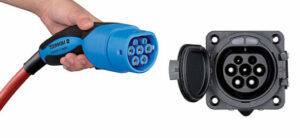
| Charging Point | Max. Power | Power | Time | Rate |
| Standard 7.4 kW On-Board Charger | ||||
| Wall Plug (2.3 kW) | 230V / 1x10A | 2.3 kW | 35 hours | 7 km/h |
| 1-phase 16A (3.7 kW) | 230V / 1x16A | 3.7 kW | 21h45m | 12 km/h |
| 1-phase 32A (7.4 kW) | 230V / 1x32A | 7.4 kW | 11 hours | 24 km/h |
| 3-phase 16A (11 kW) | 230V / 1x16A | 3.7 kW | 21h45m | 12 km/h |
| 3-phase 32A (22 kW) | 230V / 1x32A | 7.4 kW | 11 hours | 24 km/h |
| Optional 11.0kW On-Board Charger | ||||
| Wall Plug (2.3 kW) | 230V / 1x10A | 2.3 kW | 35 hours | 7 km/h |
| 1-phase 16A (3.7 kW) | 230V / 1x16A | 3.7 kW | 21h45m | 12 km/h |
| 1-phase 32A (7.4 kW) | 230V / 1x32A | 7.4 kW | 11 hours | 24 km/h |
| 3-phase 16A (11 kW) | 400V / 3x16A | 11 kW | 7h30m | 35 km/h |
| 3-phase 32A (22 kW) | 400V / 3x16A | 11 kW | 7h30m | 35 km/h |
Fast Charging (10 -> 80%)
If you want to enjoy driving an electric car, one of the most important features to consider is the number of miles per hour the car can travel while charged. This is called the “range” of the car. All electric cars have a certain range, even if they are 100% charged. This is because they do not have an internal combustion engine to lean on if you need to drive a long distance.
Max. Power: The maximum power provided by the charging point
Avg. Power: The average power provided by the charging point during a session of 10% to 80%.
Time: the time it takes to charge from 10% to 80%
Speed: the average charging rate during the session of 10% to 80%
Combined Charging System (CCS Combo 2)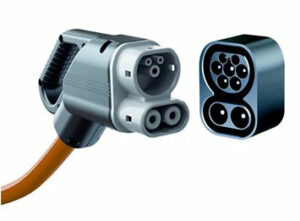
| Charging Point | Max. Power | Avg. Power | Time | Rate |
| CCS (50 kW DC) | 50 kW | 49 kW | 61 min | 170 km/h |
| CCS (175 kW DC) | 100 kW | 79 kW | 38 min | 280 km/h |
| CCS (350 kW DC) | 100 kW | 79 kW | 38 min | 280 km/h |
| Brand | Peugeot |
| Model | e-Traveller Long 75 kWh |
| Body Style | Small Passenger Van |
| Car Engine | electric |
| Motor power | 100 |
| Maximum Torque, Nm | 260 |
| Battery Energy, kWh | 75.0 |
| Power reserve (NEDC/EPA/WLTP), km | - / - / 260 |
| Level Charging (230/400/DC), hours | - / 7.3 / 0.38 |
| Electrical Acceleration, 0-100 km/h (0-62.1 mph) in sec | 13.3 |
| Top Speed, km/h | 130 |
